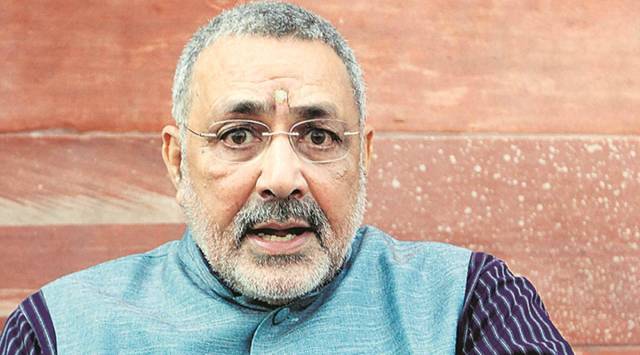Maharashtra: NCP criticises Union min Giriraj’s ‘housing for rural poor’ statement
NCP leader Mahesh Tapase said former prime minister Manmohan Singh ushered India on to the path of economic growth by introducing the policy of liberalisation, privatisation and globalisation.
 Union Minister Giriraj Singh. (File)
Union Minister Giriraj Singh. (File)The Maharashtra unit of the NCP criticised Union Minister Giriraj Singh for his statement comparing the performance of the Narendra Modi-led dispensation with that of previous governments at the Centre.
“Time and again ministers of the Modi government are making tall claims about public works done in eight years and comparing them to the work done in the last 60 years.
“On Friday, Union Minister Giriraj Singh said that only 3.26 crore houses were built for rural poor in 60 years while 2.4 crore houses have been constructed in the eight years of the Modi government.
“The ministers of the Modi government need to get their facts right and while comparing they should take a lot of factors into consideration,” said NCP Maharashtra spokesperson Mahesh Tapase in a release.
The Sharad Pawar-led party said, “Between 1947 and the early ’90s, what was the state of the country’s economy? What was the GDP? How much financial resource was available to individual ministries? All these figures have to be made public while drawing a comparison.”
The NCP leader said the Union ministers should also place on record the financial outlay of their respective ministries right from 1947 to 1990 and then again from 1990 onwards in the post-privatisation and globalisation era.
Tapase said former prime minister Manmohan Singh ushered India on to the path of economic growth by introducing the policy of liberalisation, privatisation and globalisation. “The UPA government had already catapulted India into a $2.5-trillion economy before the Modi government took over,” he said.
The NCP said despite high international prices of crude, Manmohan Singh never passed on the burden to the common man unlike the current regime.
“Communal harmony, brotherhood and respect for all were an integral part of our daily life,” he added.







